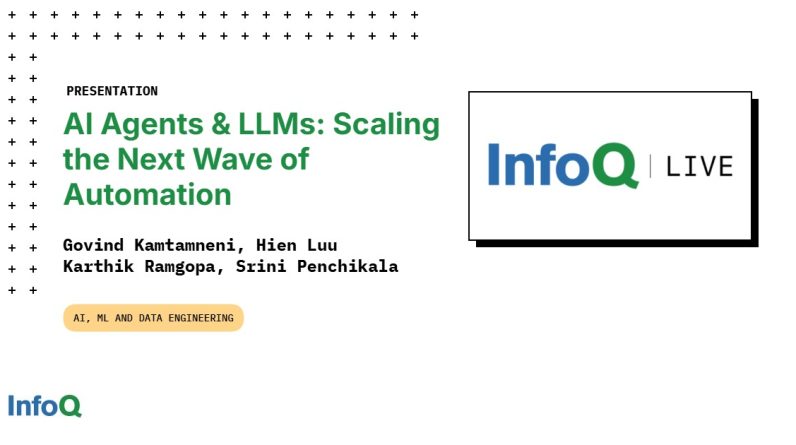The world of marketing has always been accustomed to change and disruption. From the emergence of social media to the constant evolution of the information age, the industry has learned to adapt and evolve. However, there is now a new wave of transformation that is fundamentally altering the way we approach marketing: artificial intelligence (AI).
As someone who has closely observed the rise of AI over the past decade, particularly in the realm of politics and geopolitics, I have witnessed the significant impact it has had on global affairs. From the controversial 2016 U.S. election to the proliferation of disinformation campaigns, it is clear that technology has become a driving force in shaping geopolitics and influencing the lives of billions of people.
My curiosity led me to delve deeper into the realm of next-generation technologies, with a particular focus on AI. At the time, information about AI was limited to research institutions and tech giants like Google. However, during my investigations into election interference, I stumbled upon a little-known corner of the internet where the first “deep fakes” were circulating.
Deep fakes, which refer to synthetic media generated using AI algorithms, fascinated and alarmed me. These viral creations could manipulate videos, images, text, or voices, with malicious intent. It was a clear indication of the immense power that this new technology possessed.
Fast forward a few years, and the once-niche field of AI has become a central topic that has the potential to transform society as a whole. However, it’s essential to move beyond science fiction and understand the true nature of AI.
AI is often referred to as a meta technology, meaning it is an active conceptual or functional component that is invisible to us. It will undoubtedly be misused by bad actors, just as any technology can be. But at its core, AI is a pursuit of intelligence itself, focusing on creating non-biological entities capable of achieving and creating what was once considered impossible.
It is crucial to recognize that we are the designers and creators of AI systems. The notion of AI as an autonomous force outside of human control is misleading and removes our agency in the process. We have the power and responsibility to shape AI according to our values and goals.
In the world of marketing, AI has sparked a revolution in content creation and scalability. With the help of AI tools powered by foundational models and natural language processing (NLP), marketers can now generate various types of content, including text, images, and videos.
At its core, marketing is about storytelling, and AI provides a powerful tool for creating compelling narratives and communicating a brand’s voice and values. These AI-driven tools enable marketers to craft content with greater efficiency and on a larger scale, leveling the playing field and democratizing content creation.
With AI, marketers can tap into its analytical capabilities to understand customer behavior, personalize experiences, and optimize campaigns. It opens up new possibilities for data-driven decision-making and facilitates a deeper understanding of audience preferences and needs.
FAQ
Q: Is AI capable of human-like intelligence?
A: While AI can process information, make decisions, and perform impressive tasks, it does not possess human-like intelligence. It is a powerful tool designed by humans.
Q: Can AI be misused?
A: Like any technology, AI can be misused by bad actors. However, it is our responsibility to shape and guide AI’s ethical development.
Q: How does AI impact marketing?
A: AI revolutionizes marketing by enhancing content creation, personalization, and campaign optimization. Marketers can leverage AI tools to create compelling narratives and connect with their audience effectively.
Q: Does AI remove human agency in marketing?
A: No, AI should be seen as a tool that empowers marketers and enhances their capabilities. It does not remove human agency but complements it by offering analytical insights and automation.
Sources:
– [Link to AI in Marketing report](https://www.example.com)
– [Link to AI and Ethics article](https://www.example.com/ethics)
The rise of artificial intelligence (AI) has had a significant impact on various industries, including marketing. With the help of AI tools powered by foundational models and natural language processing (NLP), marketers can now generate various types of content, including text, images, and videos. This revolutionizes content creation and scalability in marketing.
One major advantage that AI brings to marketing is its analytical capabilities. Marketers can tap into AI’s ability to process and analyze large amounts of data to understand customer behavior, personalize experiences, and optimize marketing campaigns. This opens up new possibilities for data-driven decision-making and allows for a deeper understanding of audience preferences and needs.
AI also enables marketers to craft compelling narratives and effectively communicate a brand’s voice and values. By harnessing AI-driven tools, marketers can create content with greater efficiency and scale, leveling the playing field and democratizing content creation.
However, it’s important to acknowledge the ethical considerations and potential issues related to AI in marketing. Marketers must be mindful of the responsible use of AI and ensure that it aligns with ethical standards and consumer expectations. This includes being transparent about the use of AI, respecting user privacy, and avoiding the spread of misinformation or harmful content.
Furthermore, there are concerns about the potential job displacement caused by the automation capabilities of AI in marketing. While AI can enhance marketers’ capabilities and improve efficiency, it may also lead to a shift in job roles and require marketers to develop new skills to work alongside AI systems effectively.
Overall, AI has the potential to significantly transform the marketing industry by enhancing content creation, personalization, and campaign optimization. As marketers continue to explore and embrace the power of AI, it is crucial to balance its benefits with ethical considerations and ensure that AI is used responsibly and in alignment with human values.
Sources:
– AI in Marketing report
– AI and Ethics article






